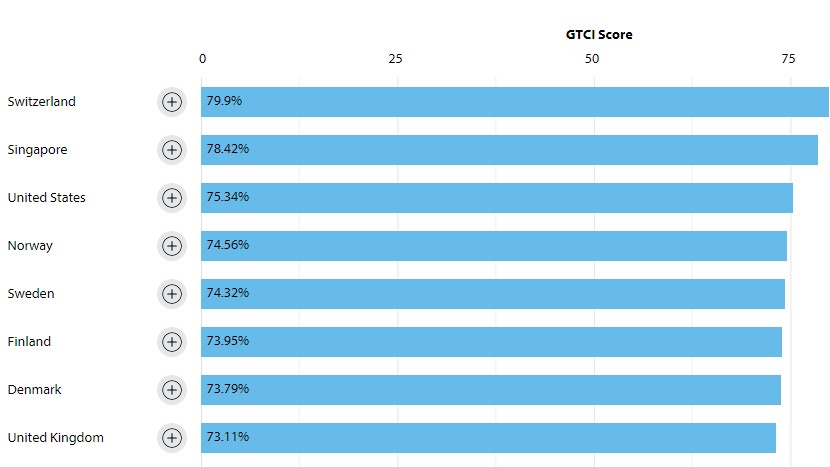How Brexit uncertainty threatens the future of UK creative industries
Last week, it was reported that there are more unfilled job vacancies than ever before in the British economy. As of November 2017, there were 810,000 unfilled vacancies in the UK – an increase of 60,000 on the previous year.
For all employers, that deserves a moment of reflection. But for employers of highly skilled workers, such as programmers, the current situation threatens to become a crisis as uncertainty over the direction of Brexit creeps in.

The challenge of attracting talent to the UK is underlined by the latest Global Talent Competitiveness Index (GTCI), which shows the UK has dropped from 3rd place in 2017, to 8th place this year. The rumours and uncertainty surrounding our future relationship with the European union are evidently making the UK a less attractive place to work.
This is a huge problem for all creative industries. Before the Brexit vote, the government was proud to declare that the creative sector contributed over £80bn to the economy. Yet the Creative Industry Federation is now warning of a “catastrophic loss of talent” if there is a poor deal on Brexit.
An example: with revenues of over £3bn in 2017, and growth of nearly 10%, the UK video games industry is booming. Yet many development houses are struggling to find enough qualified talent to build their products, and many are pointing the finger at the uncertainty brought on by Brexit.
TIGA research in mid 2017 indicated that approximately 15% of the UK’s games development workforce originates from other EU countries. More recent research by Ukie puts that figure significantly higher: Ukie’s State Of Play Report found 61% of their surveyed members rely heavily on highly skilled international talent. 35% of the workforce of those companies comes from the EU and 17% from elsewhere in the world. 70% of companies Ukie surveyed said access to overseas talent is “critically important to the industry” and that the most detrimental aspect of Brexit would be new difficulties in sourcing high-skilled EU people who bring with them experience, specific skills and perspectives. It also highlighted that 40% of the businesses were considering the total or partial relocation of their activities to another country as a direct result of Brexit, and many were actively being approached by other countries to do so.
There are long term strategies that the industry is exploring to fill the skills gap, such as Ukie’s Digital Schoolhouse (DSH) programme. DSH has partnered with Playstation and received sponsorship from Sega. Its mission is ‘to revolutionise computing education to inspire the next generation,’ and has twinned with 29 ‘Schoolhouses’, which act as regional centres of excellence, with a projected reach of 15,000 pupils and 1,600 teachers.
DSH is an admirable effort which could lead to whole generations of skilled recruits entering the UK market. But this will take many years to bear fruit. In the meantime, games makers are turning to headhunters to poach much-needed staff from their rivals. This will only give short term advantage, and risks papering over the cracks. We see similar patterns across our client base.
Vacancy numbers will continue to rise until we have a clearer idea of just what Brexit means for us all. All creative industries should be pressing the government for greater clarity and a guarantee that employees will not be adversely affected over the transition period at least. Longer term certainty would be sorely welcome.
James Dodd
enquiries@trippassociates.co.uk
Martin Tripp Associates is a London-based executive search consultancy. While we are best-known for our work in the TMT (technology, media, and telecoms) space, we have also worked with some of the world’s biggest brands on challenging senior positions. Feel free to contact us to discuss any of the issues raised in this blog.